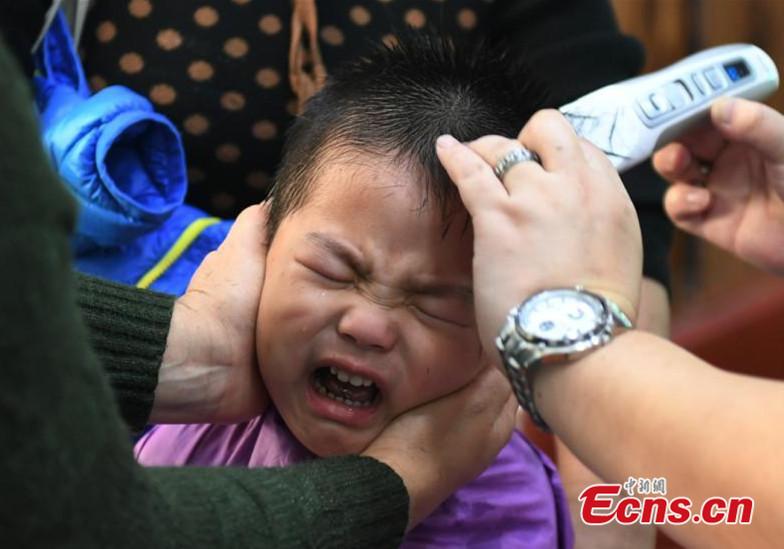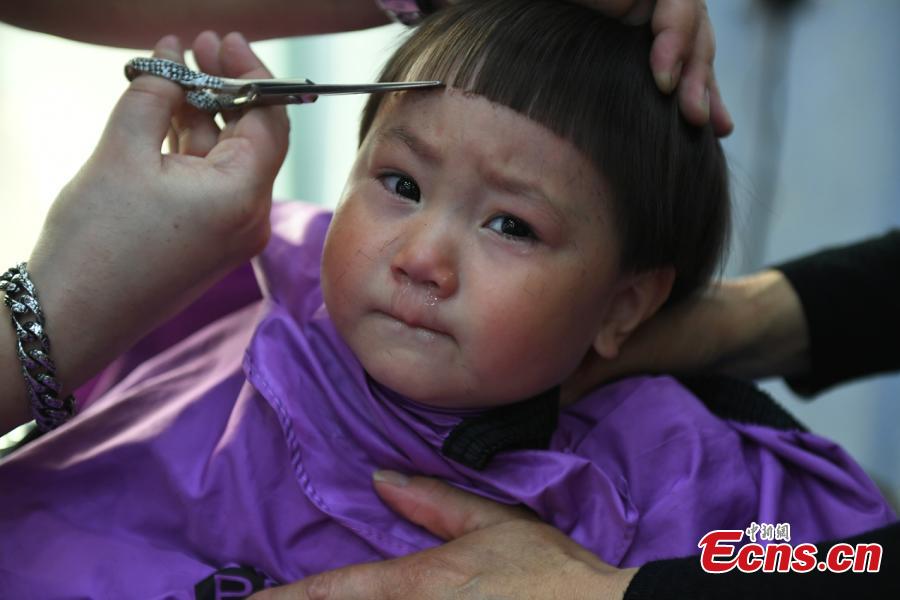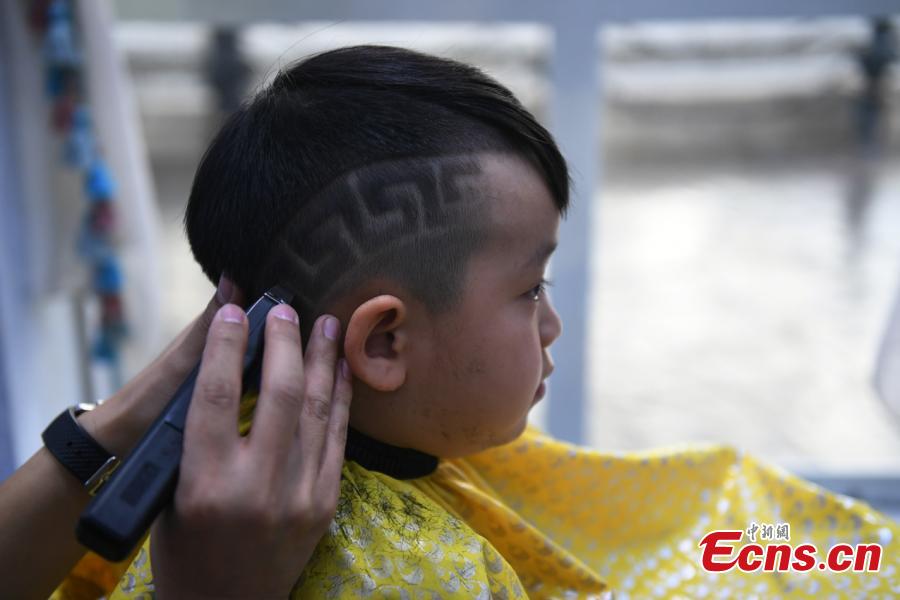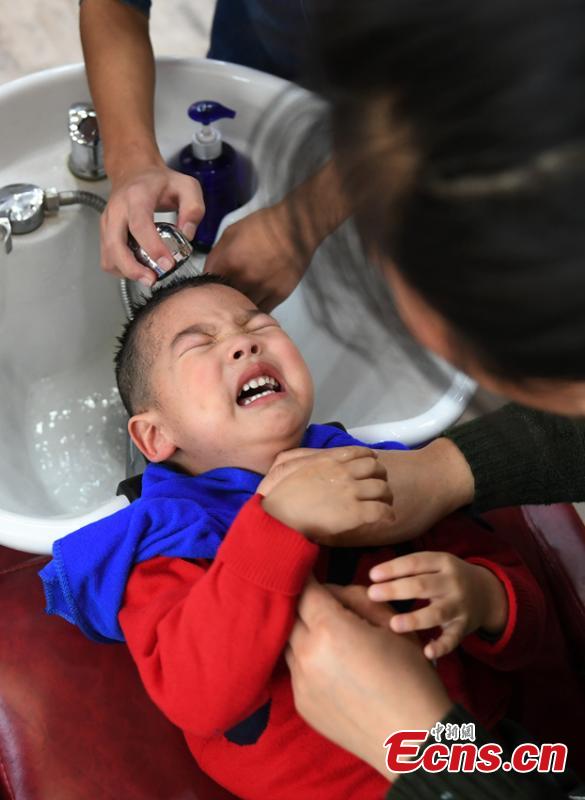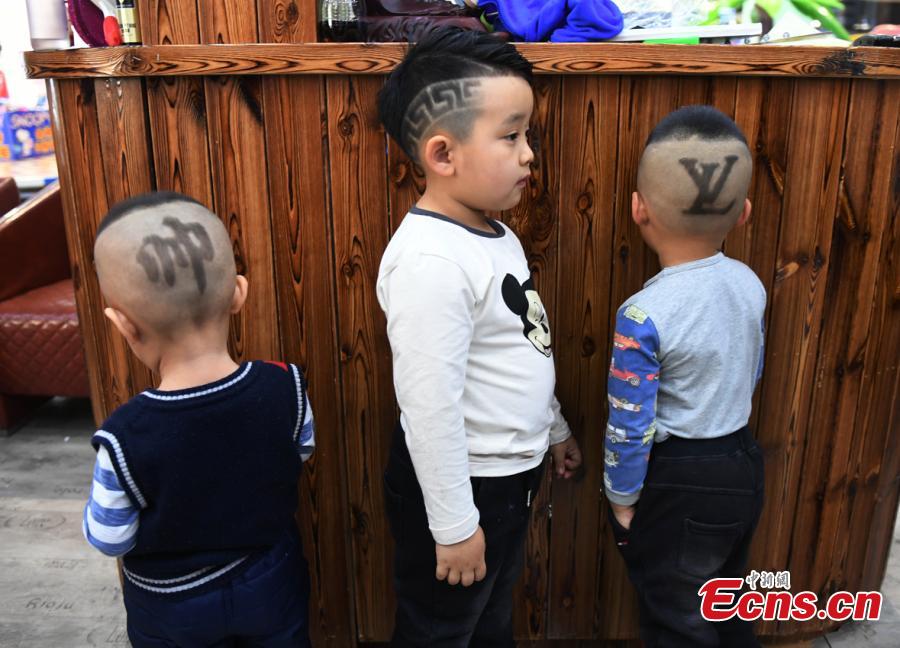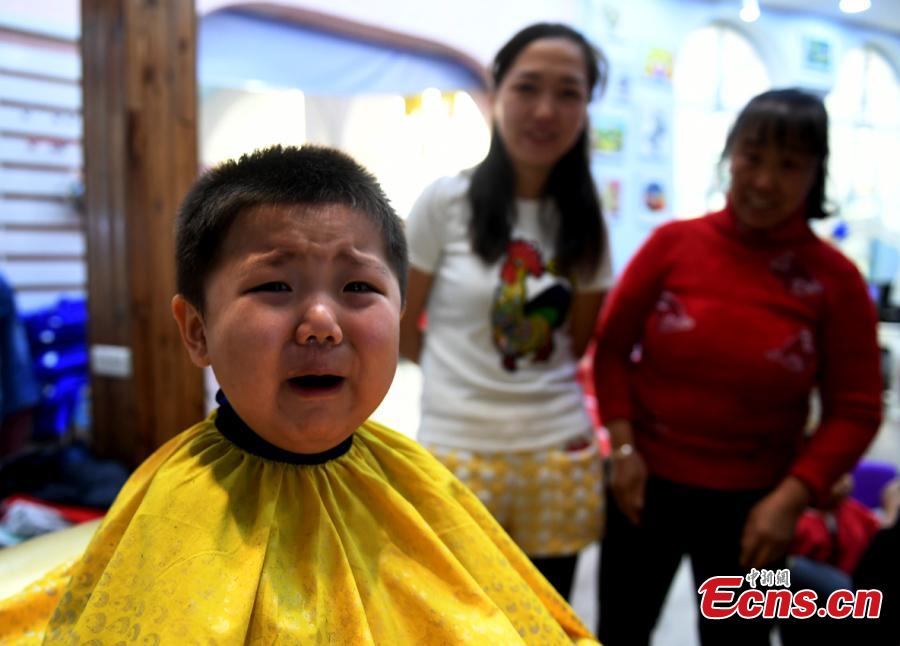New haircut on Dragon Head Raising Day
A child gets a haircut at a barbershop in Changchun City, the capital of Northeast China’s Jilin Province, Feb. 27, 2017. Feb 27 marks traditional Chinese festival Long Tai Tou (Dragon Head Raising Day), which refers to the start of spring and farming. During the festival, held on the second day of the second month of the lunar calendar, people play dragon lanterns, eat noodles, shave their hair, and pray for luck. [Photo: China News Service/Zhang Yao]
A child gets a haircut at a barbershop in Changchun City, the capital of Northeast China’s Jilin Province, Feb. 27, 2017. Feb 27 marks traditional Chinese festival Long Tai Tou (Dragon Head Raising Day), which refers to the start of spring and farming. During the festival, held on the second day of the second month of the lunar calendar, people play dragon lanterns, eat noodles, shave their hair, and pray for luck. [Photo: China News Service/Zhang Yao]
A child gets a haircut at a barbershop in Changchun City, the capital of Northeast China’s Jilin Province, Feb. 27, 2017. Feb 27 marks traditional Chinese festival Long Tai Tou (Dragon Head Raising Day), which refers to the start of spring and farming. During the festival, held on the second day of the second month of the lunar calendar, people play dragon lanterns, eat noodles, shave their hair, and pray for luck. [Photo: China News Service/Zhang Yao]
A child gets a haircut at a barbershop in Changchun City, the capital of Northeast China’s Jilin Province, Feb. 27, 2017. Feb 27 marks traditional Chinese festival Long Tai Tou (Dragon Head Raising Day), which refers to the start of spring and farming. During the festival, held on the second day of the second month of the lunar calendar, people play dragon lanterns, eat noodles, shave their hair, and pray for luck. [Photo: China News Service/Zhang Yao]
Children shows their new haircuts at a barbershop in Changchun City, the capital of Northeast China’s Jilin Province, Feb. 27, 2017. Feb 27 marks traditional Chinese festival Long Tai Tou (Dragon Head Raising Day), which refers to the start of spring and farming. During the festival, held on the second day of the second month of the lunar calendar, people play dragon lanterns, eat noodles, shave their hair, and pray for luck. [Photo: China News Service/Zhang Yao]
A child gets a haircut at a barbershop in Changchun City, the capital of Northeast China’s Jilin Province, Feb. 27, 2017. Feb 27 marks traditional Chinese festival Long Tai Tou (Dragon Head Raising Day), which refers to the start of spring and farming. During the festival, held on the second day of the second month of the lunar calendar, people play dragon lanterns, eat noodles, shave their hair, and pray for luck. [Photo: China News Service/Zhang Yao]
